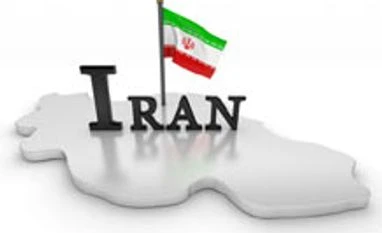Ahead of the crucial nuclear talks between global powers and Iran in New York, the US has said that the international community cannot accept Tehran's current uranium enrichment programme.
"I fully expect in the days ahead that Iran will try to convince the world that on this pivotal matter, the status quo - or its equivalent - should be acceptable. It is not," said Under Secretary of State for Political Affair Wendy Sherman.
"If it were, we wouldn't be involved in this difficult and very painstaking negotiation. The world will agree to suspend and then lift sanctions only if Iran takes convincing and verifiable steps to show that its nuclear program is and will remain entirely peaceful," she said.
"Thus far, we can say on the positive side that our talks have been serious and that we have identified potential answers to some key questions. However, to get to a comprehensive agreement, we remain far apart on other core issues, including the size and scope of Iran's uranium enrichment capacity," Sherman said in a speech at an award- giving ceremony at Georgetown University yesterday.
"We must be confident that any effort by Tehran to break out of its obligations will be so visible and time-consuming that the attempt would have no chance of success. The ideas we have presented to Iran uphold this standard, and are also fair, flexible, and consistent with Iran's civilian nuclear needs and scientific knowhow," the American diplomat said.
"As should be obvious, a peaceful solution of this issue is highly desirable because, compared to any alternative, a diplomatic outcome is more likely to be permanent and less likely to generate new risks," said Sherman, who leads negotiations for the US.
She said an Iran armed with nuclear weapons would have the ability to project devastating power far beyond its borders, threaten Israel and further assist extremists.
"If Tehran developed a nuclear weapon, other countries in the region might well pursue the same goal, generating a potentially catastrophic nuclear arms race and intensifying the sectarian divide that is a major source of Middle East tension," she said.
"For these reasons, (US) President (Barack) Obama has pledged that Iran will not be allowed to acquire a nuclear weapon. Since late last year, I have been leading the US negotiating team that is seeking a diplomatic path to that objective," she said.
"America's purpose in the negotiation is to develop a plan of lasting duration that would block all of the Islamic Republic's potential paths to a nuclear weapon," she added.
"I fully expect in the days ahead that Iran will try to convince the world that on this pivotal matter, the status quo - or its equivalent - should be acceptable. It is not," said Under Secretary of State for Political Affair Wendy Sherman.
"If it were, we wouldn't be involved in this difficult and very painstaking negotiation. The world will agree to suspend and then lift sanctions only if Iran takes convincing and verifiable steps to show that its nuclear program is and will remain entirely peaceful," she said.
Also Read
The next round of talks between Iran and the P5+1 nations comprising of the US, Britain, China, Russia, France and Germany begins in New York tomorrow on the sidelines of the 69th annual session of the UN General Assembly.
"Thus far, we can say on the positive side that our talks have been serious and that we have identified potential answers to some key questions. However, to get to a comprehensive agreement, we remain far apart on other core issues, including the size and scope of Iran's uranium enrichment capacity," Sherman said in a speech at an award- giving ceremony at Georgetown University yesterday.
"We must be confident that any effort by Tehran to break out of its obligations will be so visible and time-consuming that the attempt would have no chance of success. The ideas we have presented to Iran uphold this standard, and are also fair, flexible, and consistent with Iran's civilian nuclear needs and scientific knowhow," the American diplomat said.
"As should be obvious, a peaceful solution of this issue is highly desirable because, compared to any alternative, a diplomatic outcome is more likely to be permanent and less likely to generate new risks," said Sherman, who leads negotiations for the US.
She said an Iran armed with nuclear weapons would have the ability to project devastating power far beyond its borders, threaten Israel and further assist extremists.
"If Tehran developed a nuclear weapon, other countries in the region might well pursue the same goal, generating a potentially catastrophic nuclear arms race and intensifying the sectarian divide that is a major source of Middle East tension," she said.
"For these reasons, (US) President (Barack) Obama has pledged that Iran will not be allowed to acquire a nuclear weapon. Since late last year, I have been leading the US negotiating team that is seeking a diplomatic path to that objective," she said.
"America's purpose in the negotiation is to develop a plan of lasting duration that would block all of the Islamic Republic's potential paths to a nuclear weapon," she added.
)